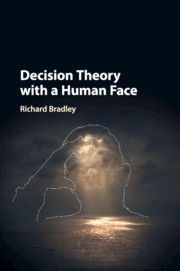Preface
Published online by Cambridge University Press: 11 October 2017
Summary
The aim of this book is to develop a decision theory that is tailored for ‘real’ agents – i.e. agents who, like us, are uncertain about a great many things and are limited in their capacity to represent, evaluate and deliberate, but who nonetheless want to get things right to the extent that they can. The book is motivated by two broad claims. The first is that Bayesian decision theory provides an account of the rationality requirements on ‘unbounded’ agents that is essentially correct and is applicable in circumstances in which agents are aware of all the options available to them and are able to form precise judgements about all relevant contingencies. The second is that there are many circumstances in which these conditions are not satisfied and hence in which classical Bayesian theory is not applicable. A normative decision theory, adequate to such circumstances, would provide guidance on how bounded agents should represent the uncertainty they face, how they should revise their opinions as a result of experience and how they should make decisions when lacking full awareness or precise opinions (that they have confidence in) on relevant contingencies. The book tries to provide such a theory.
So many people have helped me with this project over the many years it has taken to complete it that I fear that I will forget to mention many of them. Its origins lie in my PhD dissertation completed under the supervision of Richard Jeffrey, David Malament and Dan Garber. Their support and that of Philippe Mongin, Dorothy Edgington and John Broome in the early years after the start of my career was crucial to my sticking with it. The influence of Dick Jeffrey on my thinking is hard to overestimate. The title of this book mirrors that of a paper of his – ‘Bayesianism with a human face’ – in which he espoused the kind of heterodox Bayesianism that pervades my writing. To me, he was the human face of Bayesianism.
Almost as much of an influence has been Jim Joyce, whom I first met at a workshop on Jeffrey's work some 20 years ago. Big chunks of this book can be read as a dialogue with The Foundations of Causal Decision Theory and his subsequent work on Imprecise Bayesianism.
- Type
- Chapter
- Information
- Decision Theory with a Human Face , pp. xiii - xivPublisher: Cambridge University PressPrint publication year: 2017

